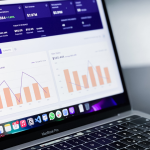If you are a SaaS product manager or marketing manager, then one of your prime responsibilities would be to increase conversions. SaaS, being a highly competitive market, it is difficult to acquire new customers. Unless you aren't analyzing how people are interacting with your product, you won't be able to make it far. Here, the role of marketing analytics, such as tracking the … [Read more...] about How to Use Marketing Analytics for SaaS to Increase Conversions
Strategy
Learn everything about data strategy, what it should include in order to be successful, and how you can develop a data-driven business strategy for your business.
Why a Robust Product Data Syndication Strategy Is Critical to Elevate Your Digital Business?
With the increasing demand for online shopping, businesses must remain agile and adaptable to keep up with today's changing times. The potential for marketing power beyond owned sales channels is vast, with an infinite landscape of unowned channels operated by third parties such as Target, Alibaba, Facebook, or Google Shopping. A robust product data syndication (PDS) strategy … [Read more...] about Why a Robust Product Data Syndication Strategy Is Critical to Elevate Your Digital Business?
10 Ways Technology Can Improve Customer Experience
Customer service can make or break your business, but technology can help. It's an essential tool for crafting experiences that attract and retain consumers. Whether a personalized recommendation popping up on a user's screen, a helpful chatbot or a seamless mobile app experience, these technologies can turn a one-time buyer into a lifelong patron. The transformative power of … [Read more...] about 10 Ways Technology Can Improve Customer Experience
The Advantages of IT Staff Augmentation Over Traditional Hiring
As companies expand and adjust to the ever-changing technology landscape, the need for IT professionals grows alarmingly. But the traditional process of hiring developers can be lengthy and costly, particularly for smaller businesses with small budget. This is the point where IT staff augmentation comes into. In this blog, we'll examine the benefits of IT staff enhancement over … [Read more...] about The Advantages of IT Staff Augmentation Over Traditional Hiring
The State of Digital Asset Management in 2023
From its start as a primitive folder structure in the early 2000s to the current state-of-the-art cloud DAM, the digital asset management (DAM) industry has undergone a massive transformation over the past decade. And its evolution is far from over. In a world of exponential data growth, DAM is one area where technological changes are occurring at a rapid pace, and many … [Read more...] about The State of Digital Asset Management in 2023
What is data strategy?
Data strategy, also called analytics strategy or business data strategy, is the organizing principle for an enterprise’s investments in data and data-related technologies. Data strategy provides a framework for thinking through the complex trade-offs in managing data as an enterprise resource.
It helps business leaders make decisions about where to focus their data investments and how to maximize the value of those investments. Want to learn more about data strategy? Datafloq has courses available. Contact us to get started.
How does data strategy work?
Data strategy starts with a clear understanding of an organization’s business goals. From there, it defines the role that data will play in achieving those goals and outlines a plan for how to get the most value from data. Data strategy is an essential part of any organization’s overall data business strategy.
When done well, it can help organizations make better use of their data and gain a competitive edge. But when executed poorly, it can lead to wasted resources and missed opportunities. Data strategy is not a one-time exercise; it should be revisited regularly as an organization’s business goals and needs evolve.
What are the four big data strategies?
Big data can be a big help when it comes to making decisions for your business. But how do you make sense of all the data out there? One way is to use the four big data strategies:
- Performance management — Helps you track and improve your business’s performance.
- Data exploration — Helps you understand your data and find hidden patterns.
- Social analytics — Helps you analyze data to understand customer behavior.
- Decision science — Helps you use data to make better decisions.
These strategies can help you get the most out of your data and make better decisions for your business.
What should a data strategy include?
A data strategy should be designed to help an organization achieve its business goals. It should be aligned with the organization’s overall data business strategy to be effective, considering its unique needs, such as its size, industry, and geographic location.
The data strategy should also define the roles and responsibilities of those responsible for managing the data. Finally, the data strategy should identify the tools and technologies that will be used to collect, store, and analyze the data. By considering these factors, an organization can develop a data strategy to help it meet its business goals.
What is a big data strategy, and why should companies have the strategy in place?
Big data refers to a large number of data companies have access to. It can come from various sources, including social media, transaction records, and sensors. The challenge for companies is to make sense of this data and use it to improve their business.
A big data strategy helps companies to set goals and priorities for dealing with big data. It also helps them to invest in the right technologies and build the necessary expertise. Companies will struggle to get the most out of their data assets without a big data strategy. They will also be at a competitive disadvantage compared to those companies that have invested in big data.






